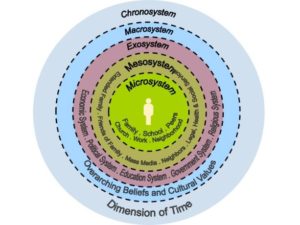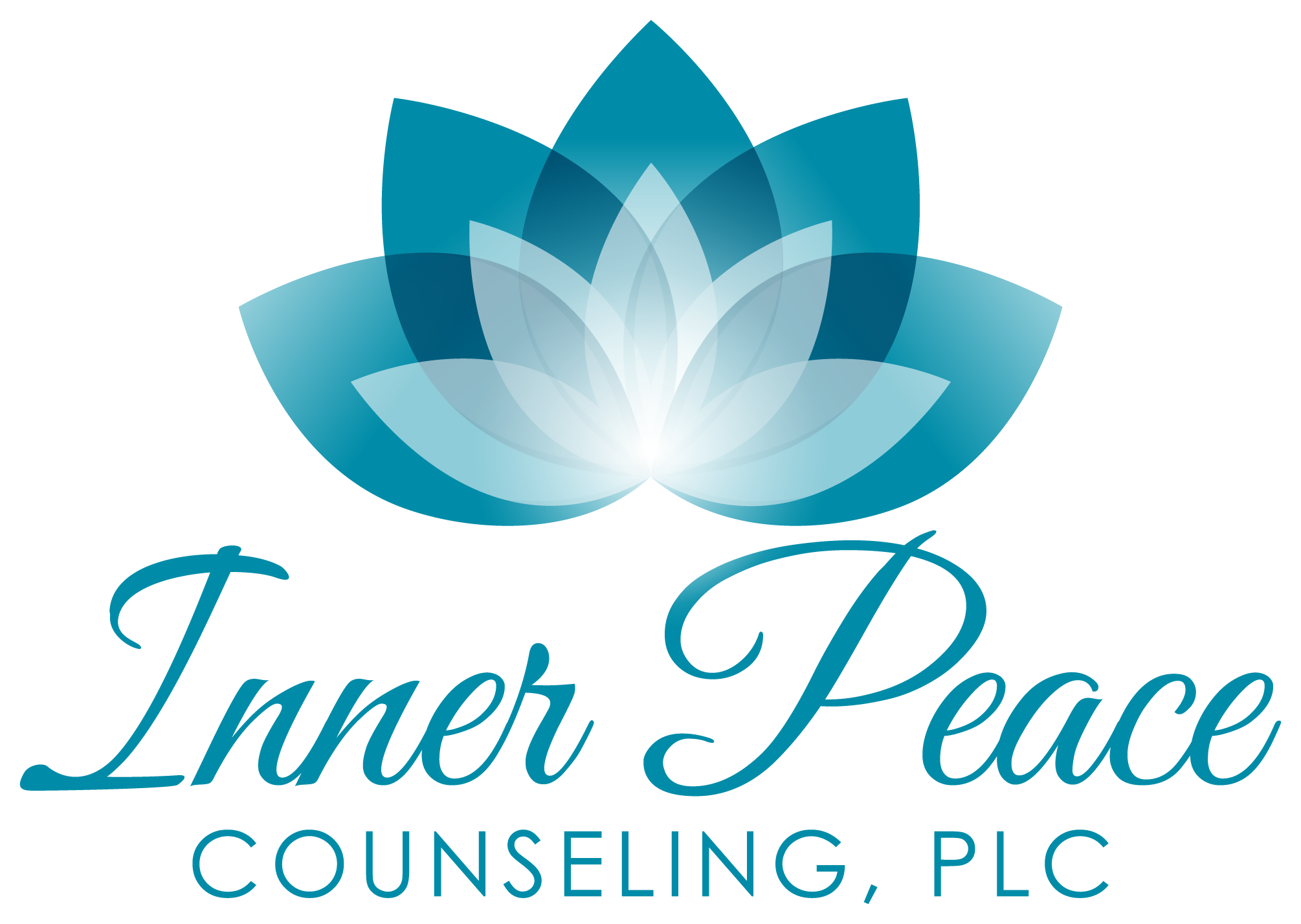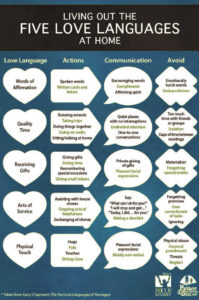What You Should Know about Family Therapy

By: Ashley Carter Youngblood
Categories:
What You Should Know about Family Therapy

Therapists naturally see the “big picture” of systems and how they interact with one another. This approach called “Systems Theory”. As I mention on the “Home” page, we are not beings in isolation. Everything we do and everything we are is connected to our unique set of systems, whether that’s our family, school, neighborhood, ethnicity, religion, or the like. While family therapy is often focused on solving problems experienced within the family, part of how I see my role when providing family therapy is allowing each microsystem (i.e. member of the family and their systems) to function in harmony together.
Approaches to Family Therapy
Using the Gottman Method
Although family therapy is not couples counseling, I include during family therapy much of the evidence-based skills from the Gottman Method for couples. This is because the Gottman approach is emotion-focused and need-based. So much of the time, in the heat of conflict, family members forget to share with their loved ones what emotions they are experiencing. But, this is not where the works ends. Next, remaining need-based in our communication helps to share our experiences with others. This structure may look similar to the following:
Teenage daughter: “I feel frustrated about people coming into my room without knocking. I need for the door to be knocked on before someone comes in.”
Other members of the family involved in the conflict can then interact in the same way, back and forth, until more clarity is found:
Mother: “I feel sad about the door to your bedroom being shut. I need to be connect with you in some other way.”
This “I feel ___ about ___. I need ___” structure of statements avoids blaming (and the other Four Horsemen) and, because of this, can often naturally reduce the tension about the conflict.
Understanding Love Languages
Another approach to family therapy that I frequently use and find helpful is the concept of the “5 Love Languages”. (Find a link to more information about this on my “Resources” page.) This approach to relationships, communication, and needs has been popular since the 1990s and can often be a helpful way to view why some people feel like they are putting a lot of work into a relationship without getting much back. I also use this approach frequently in couples counseling.
The central concept here is that, although you may say to a loved one a million times a day “I love you”, “You are so smart”, “You look extra handsome today”, this may not be truly heard by the other if they speak a different “language” of love. Gary Chapman first outlined in his book, “The Five Love Languages: How to Express Heartfelt Commitment to your Mate” (although they later published the “5 Love Languages” for kids and families), that people speak 5 different languages of love – Words of Affirmation, Quality Time, Gifts, Acts of Service, and Physical Touch (that isn’t necessarily sexual).
Problems arise when, for example, someone is speaking the language of Gifts when the other person understands love via the language of Acts of Service. Think about it. If someone who speaks French says “I love you” to their loved one but their loved one only speaks German, this important information isn’t truly heard. And, therefore, the person whose language is German doesn’t truly feel loved.
Using this framework to understand how love is received, I have found that family therapy can include reviewing ways that family members understand love. Spending a lot of Quality Time with someone who really only feels connected with Physical Touch via hugs isn’t going to feel supported. So, understanding ourselves and our loved ones is an essential first step to working through conflict. (If you’re curious, you can take a free quiz to find out your love language here.)
Filling “Love Tanks”
When doing family therapy, another approach I borrow from the 5 Love Languages concept is the idea of “love tanks”. I encourage clients to think of themselves and their loved ones as having an emotional bank account. When there are positive interactions (we can remind ourselves at this point of the 5:1 positive to negative ratio of interactions that I discuss on my page about Couples Counseling), love is being deposited. When the love bank account is full, even with difficult interactions, there is still the ability to withdrawal and not have an overdraft. But, when people’s love languages aren’t understood or respected, when communication about emotions or needs are non-existent, there is nothing to give from the account. They are burned out. So, conflict arises. This makes positive interactions that fill the love tank of others essential for a healthy, working organism.
Family Therapy and Stages in the Life Cycle
Aside from challenges with connection and communication, the other major motivator for people to seek family therapy is a transition through the stages of life cycles. This is, of course, not just limited to family therapy. Often such changes cause individuals to seek counseling for support during these times, as well. These stages are as follows: Single Adulthood, Marriage/Partnership, Parenting Young Children, Parenting Adolescents, Launching Children, Empty Nesting/Aging.
These stages are often challenging changes in themselves, particularly the stage of parenting adolescents. But, it can be additional transitions within these stages, like divorce, death, immigration, addiction, or cultural issues, that cause even more stress. Whatever the issue, family therapy can be a great way to holistically address a variety of issues related to a central problem. And, even if other members of the family don’t want to/can’t be present, we can still do family therapy by addressing all of the different dynamics present in your unique situation.
~Ashley Carter Youngblood, LMSW, LMFT, CADC, ADS, NNP, CIMHP, CNRC
 Ashley Carter Youngblood is a licensed Clinical Social Worker, licensed Marriage and Family Therapist, and a Certified Integrative Mental Health Professional, Nutrition Network Professional, and Certified Nutrition Recovery Coach who has been in the field since 2007. She offers counseling at her woman-owned business, Inner Peace Counseling, PLC, for those in Kalamazoo, Portage, Mattawan, Battle Creek, Paw Paw, and the surrounding areas of Southwest Michigan. She is passionate about her work with clients, whether it’s providing traditional individual counseling, life coaching, acupuncture, or Amino Acid Therapy for mental health symptoms. Her specialties include holistic healing, counseling for women, anxiety, nutritional interventions for mental health, and support for Highly Sensitive People/Empaths.
Ashley Carter Youngblood is a licensed Clinical Social Worker, licensed Marriage and Family Therapist, and a Certified Integrative Mental Health Professional, Nutrition Network Professional, and Certified Nutrition Recovery Coach who has been in the field since 2007. She offers counseling at her woman-owned business, Inner Peace Counseling, PLC, for those in Kalamazoo, Portage, Mattawan, Battle Creek, Paw Paw, and the surrounding areas of Southwest Michigan. She is passionate about her work with clients, whether it’s providing traditional individual counseling, life coaching, acupuncture, or Amino Acid Therapy for mental health symptoms. Her specialties include holistic healing, counseling for women, anxiety, nutritional interventions for mental health, and support for Highly Sensitive People/Empaths.
I welcome you to contact me or leave any questions or feedback you have about this post. Please keep in mind that the above information is the opinion of an individual, should not be considered medical advice/treatment, and is for entertainment/educational purposes only. I write these blogs as an expression of my passion for wellness and with the hope to be able to help as many people as possible. So, for more information about how to safely navigate this website and to what terms you are agreeing upon use, visit my Disclaimer page. And, as always, if you are experiencing an emergency, contact 911 or present yourself to your nearest emergency room.
Thanks for reading.

